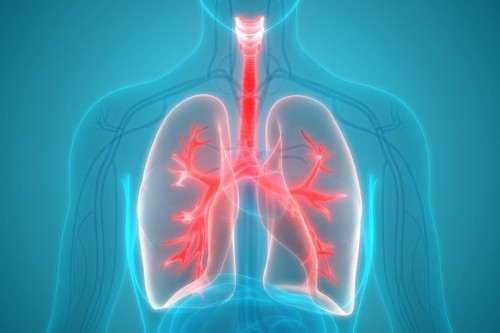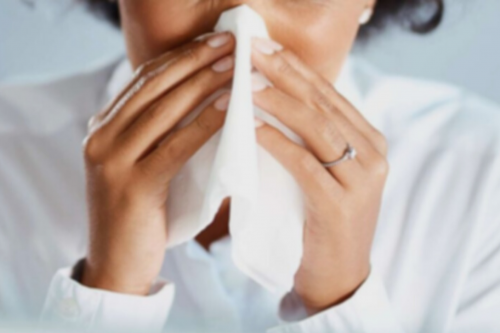
Post Coronavirus Syndrome: Long-COVID or Long haulers
Author: Adriane Gianlupi, MD
"Long-COVID", also referred to as post-acute COVID-19, chronic COVID-19, post-COVID syndrome, or post-acute sequelae of SARS-CoV-2 infection (PASC), generally refers to symptoms that develop during or after acute COVID-19 illness, continue for 12 weeks or longer, and are not explained by an alternative diagnosis. It is not yet known whether "long-COVID" represents a new syndrome unique to COVID-19 or overlaps with recovery from similar illnesses.
When will I get better after having COVID-19?
For most people who get COVID-19, symptoms get better within a few weeks. But some people, especially those who got sick enough to need to go to the hospital, continue to have symptoms for longer. These can be mild or more serious. The time to symptom resolution depends primarily on premorbid risk factors, the severity of the acute illness, and the spectrum of initial symptoms. However, prolonged symptoms are common even in patients with less severe disease who were never hospitalized. Researchers at the CDC and Kaiser Permanente found "most adults who test positive for the virus that causes COVID-19 don't require hospital care, but they tend to seek medical care in the following months, and two-thirds of those who do seek care receive a diagnosis of a new health condition they did not have previously." The researchers say it indicates people who test positive for the virus "may experience new or persistent symptoms months after the initial diagnosis."
Doctors are still learning about COVID-19. But they generally describe 3 stages of illness and recovery:
- "Acute COVID-19" - This refers to symptoms lasting up to 4 weeks after a person is infected. Most people with mild COVID-19 do not have symptoms beyond this stage, but some do.
- "Ongoing symptomatic COVID-19" - This refers to symptoms that continue for 4 to 12 weeks after being infected. People who get severely ill during the acute stage are more likely to have ongoing symptoms.
- "Post-COVID-19" - This refers to symptoms that continue beyond 12 weeks after being infected. This is more common in people who were critically ill, meaning they needed to stay in the intensive care unit ("ICU"), be put on a ventilator (breathing machine), or have other types of breathing support but can also occur in patients that had mild symptoms or even asymptomatic ones (without symptoms) during their infection with COVID-19.
What symptoms are most likely to persist?
This is not the same for everyone. But symptoms that are more likely to last beyond a few weeks include:
- Feeling very tired (fatigue)
- Trouble breathing
- Chest discomfort
- Cough
Other physical symptoms can also continue beyond a few weeks. These include problems with sense of smell or taste, headache, runny nose, joint or muscle pain, trouble sleeping or eating, sweating, persistent low-grade fever, elevated heartbeat upon standing and diarrhea. Headache, insomnia (difficult falling asleep), anxiety, depression, post-traumatic stress disorder ("PTSD"), and cognitive dysfunction (foggy brain) have also been reported.
It is hard for doctors to predict when symptoms will improve, since this is different for different people. Your recovery will depend on your age, your overall health, and how severe your COVID-19 symptoms are. Some symptoms, like fatigue, might continue even while others improve or go away.
When should I call my doctor or nurse?
Some fatigue is common and can persist for a few weeks into your recovery. But if you had COVID-19 and continue to have bothersome symptoms (such as severe fatigue, or chest discomfort, persistent cough or shortness of breath) after 2 to 3 weeks, call your doctor or nurse. You likely will need to see a lung doctor (Pulmonologist). You should also call if you start to feel worse or develop any new symptoms.
Depending on your symptoms, you might need tests such as chest Xray, chest CT, electrocardiogram/echocardiogram or breathing tests. These will help your doctor better understand what is causing your symptoms and whether you need treatment.
How are persistent COVID-19 symptoms treated?
In general, treatment involves addressing whichever symptoms you have and what is causing them, such as lung inflammation, blood clots, heart failure, coronary artery disease which are all complications of COVID-19 infection. Often that means combining a few different treatments.
If you are tired, try to get plenty of rest. You can also try the following things to help with fatigue:
- Plan to do important tasks when you expect to have the most energy, typically in the morning.
- Pace yourself so you do not do too much at once and take breaks throughout the day if you feel tired.
- If you are not sleeping well, improving your "sleep hygiene" can help. This involves things like going to bed and getting up at the same time each day, avoiding caffeine and alcohol late in the day, and not looking at screens before bed.
Depending on your situation, you might also need:
- Medicines to relieve symptoms like cough and shortness of breath such as inhalers, nebulizers, and steroids (Prednisone). You might need to be evaluated for short term Oxygen supplementation.
- Cardiac rehabilitation - This involves improving your heart health through things like exercise, dietary changes.
- Pulmonary rehabilitation - This includes breathing exercises to help strengthen your lungs and quitting smoking (if you smoke).
- Physical and occupational therapy - This involves learning exercises, movements, and ways of doing everyday tasks.
- Treatments for anxiety or depression - This can involve medicine and/or counseling.
- Exercises and strategies to help with memory and focus.
Is there any way to avoid persistent COVID-19 symptoms?
The only way to avoid this for sure is to avoid getting COVID-19. It is true that most people who are infected will not get very sick. But it is impossible to know who will recover quickly and who will have persistent symptoms.
Get a vaccine as soon as you can even if you already got COVID-19 infection. This is the best thing you can do to prevent COVID-19. In addition, continue to practice social distancing, wearing face masks in public, not touching your face, and washing your hands often. Doing these things will protect you while also helping to slow the spread of COVID-19. These practices should continue even after you got the vaccine.

Related Articles

Pulmonary
Screening for Lung Cancer
It is recommended that patients with a significant history of smoking should undergo a low dose...

Pulmonary
Nasal Allergies and Irritants
Nasal allergies, also called allergic rhinitis, are extremely common and may cause significant...

Pulmonary
Asthma
What is Asthma? Asthma is a chronic, inflammatory disease which makes the airways in the lungs...

Women's Health
Have You Completed a Breast Cancer Risk Assessment?
OakLeaf Clinics has invested in software to identify and manage patients at high risk of developing...
